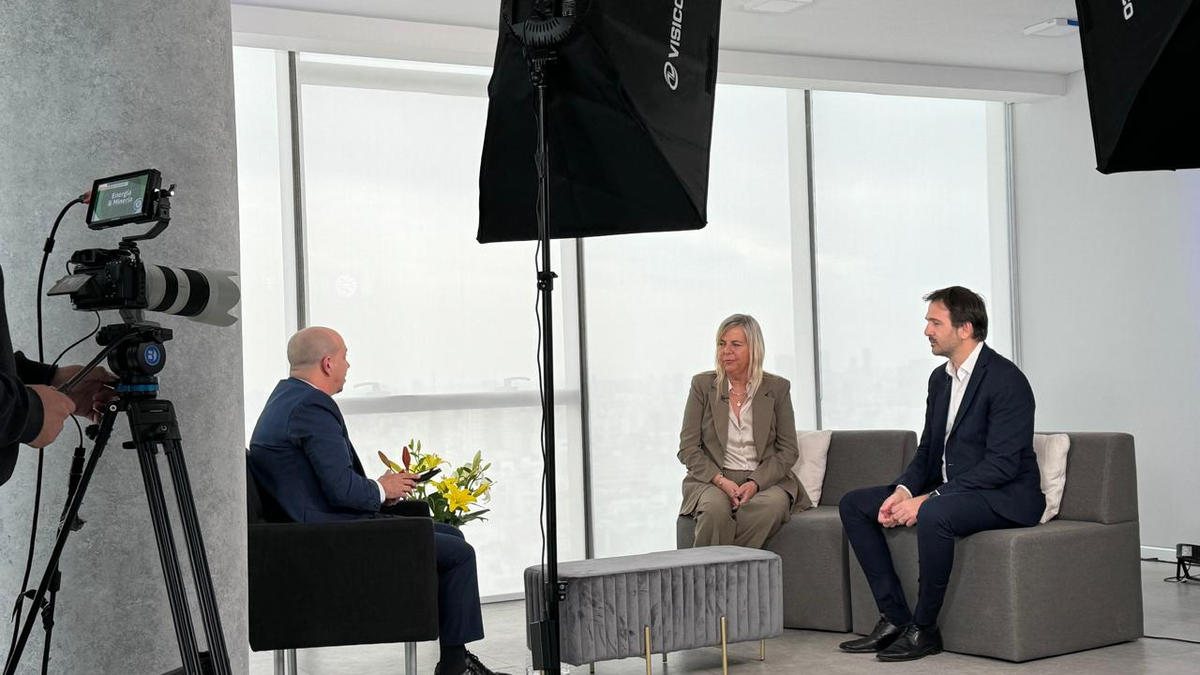Energy efficiency
Martínez expressed himself along the same lines, pointing out that “we see with great optimism that these issues are debated in society and there is a change in culture that has to do with an important part, which is energy efficiency.”
In this regard, he pointed out that “we have to take care of energy and somehow direct it towards renewable energy and Argentina has a role in this. incredible potential, both from natural resources and from the potential of human training.”
“This much-needed electrification has accelerated in recent years. This energy transition route that we brought to Argentina seven years ago and that we proposed and focused on, seems to me to be vital. We cannot talk about economic development if there is no energy available,” he said.
In this regard, he admitted that in the country “we don’t take care of energy”, referring to “a cultural issue that has to do with caring for the environment,” but also because “when there is no economic signal to accompany it, one naturally relaxes, which was what happened for a long time and we did not make efficient use of it.”
“The removal of subsidies, having a reasonable and competitive rate, helps to recognize that energy must be taken care of and that it has a value and a cost, Because behind turning the knob and turning on the light, well, there is an entire infrastructure and a huge amount of work,” he said.
Technology as a “strategic necessity”
In this regard, Bin stressed that “Investing in technology is no longer a competitive advantage but a strategic necessity” to have greater productivity, more data and therefore be able to make better decisions.”
“Today we are in a process in which we are talking about the energy transition and part of the large investments are not only for the domestic market, but for industries for the export model. For that, one has to be competitive and To achieve this competitiveness, you have to invest in technology,” argument.
He added: “We see that in recent years one of the driving forces of the local economy has been the oil and gas sector and it continues to be so, but for the future we will have to continue investing much more in energy to achieve these competitive costs.”
Bin referred to the computer system known as “digital twin”. “One of its main objectives is to be able to simulate different scenarios in the first phase, regardless of what happens, in order to then be able to apply it to the real world,” he explained.
And he illustrated: “For example, in an electrical network, start simulating different scenarios of entry, of generation of a new consumer, of a large consumer. Then start modeling what the impact of the network is, how it should be reinforced so that it does not have any effect and understand what is the best productivity of that line.”
“There is a concept that is used a lot today in the software industry, which is precisely the Agile methodology, where one does not produce something and that product ends, but rather that product continually undergoes different modifications in some way, either because it may have other capabilities or because the market is asking for it,” he added.
Data management
Alejandra Martinez He considered that this technology “is essential to prepare for a possible contingency or crisis, since they carry out different exercises on how to address them in the shortest time possible.”
“We installed the first smart meters in Argentina. In Italy, it is already in its second generation. With proper monitoring of the network, this allows you to see in real time how a house is consuming and whether or not there is a problem,” he said about the role of innovation at Enel.
Nicholas Bin He stressed that Siemens achieved “a first success story on a larger scale, which is the first implementation of a MDM (Meter Data Management), which applies to data measurement management.”
“What we did was implement a first system that not only collects and organizes this information, but also analyzes it, and based on this analysis, provides information, in this case to the distributor, so that it can make decisions. This is already working in Cordova for almost 300,000 users, both industrial and residential. This system, apart from organizing the information, processing it and analyzing it, also links it to the billing process. In other words, it automates it,” he added.
A look into the future
Finally, Bin acknowledged that “there is a very optimistic view towards the future in relation to economic growth, which will be related to greater energy consumption.” “Argentina is transforming itself at a national level and little by little there will be industries that will be just as important as the countryside and this diversification will allow the country to grow in infrastructure,” projection.
He also stressed that “the oil and gas sector will begin to monetize and, looking ahead to 2030, having an LNG plant will be a leap forward in terms of production, making it a global player.”
At the same time, Martínez considered that “transport works are very necessary,” noting that the current situation “is a bottleneck for the development of renewable energies.”
Along the same lines, he stated that in the future “Energy will have the value it should have,” something that he considered “fundamental” for the country. “We have infinite resources ahead of us to take advantage of and the challenge is to finally understand that energy has to be a State policy. When we manage to become aware of this point, We have everything ahead of us to become a power,” became hopeful.
Source: Ambito
I am Pierce Boyd, a driven and ambitious professional working in the news industry. I have been writing for 24 Hours Worlds for over five years, specializing in sports section coverage. During my tenure at the publication, I have built an impressive portfolio of articles that has earned me a reputation as an experienced journalist and content creator.




